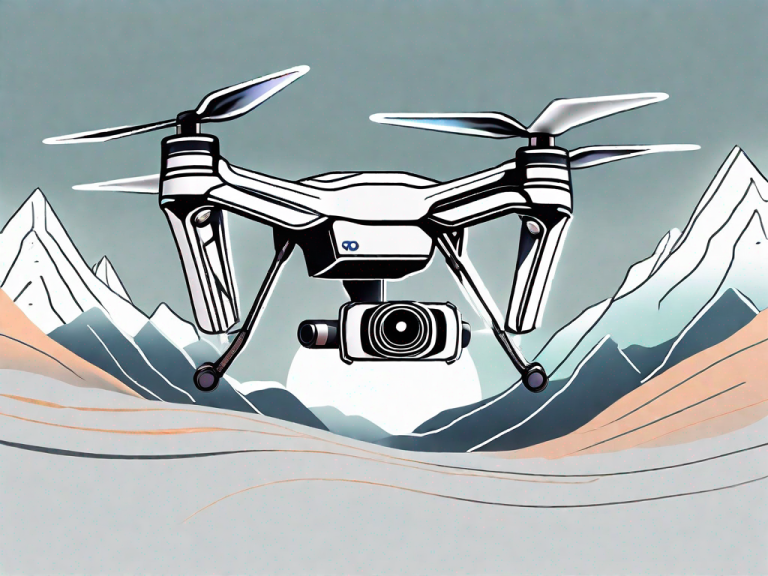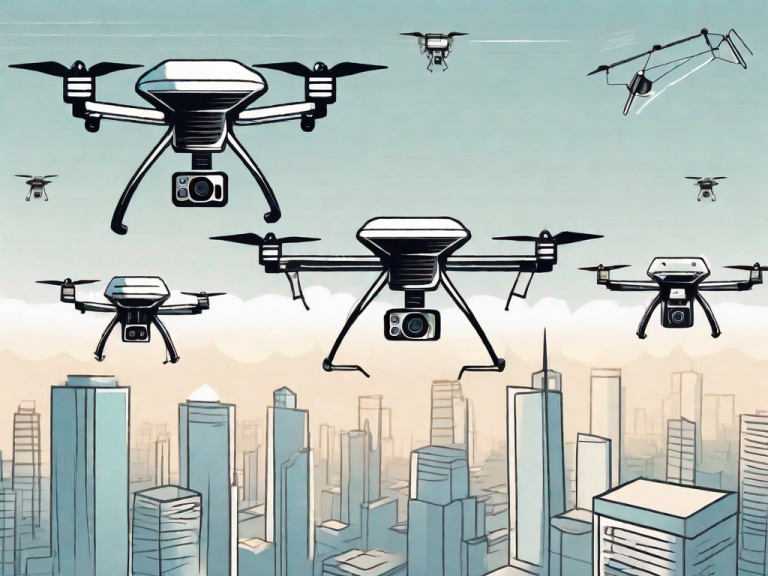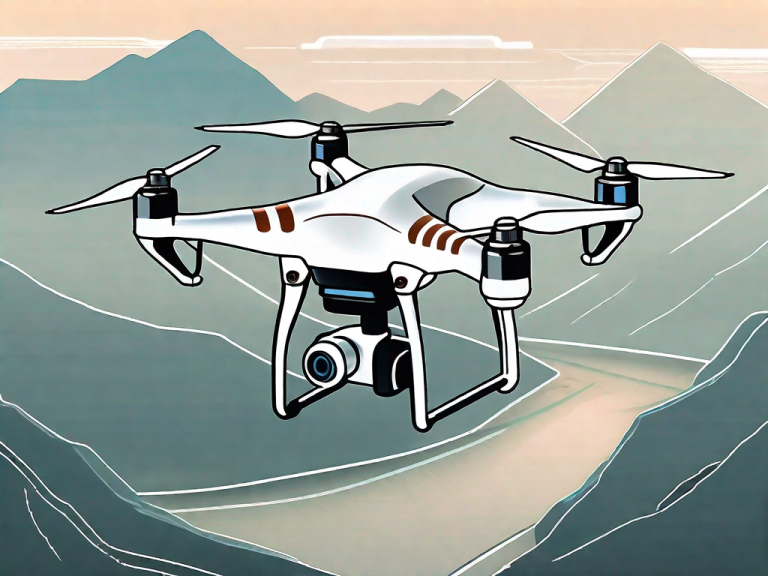In the world of drones, nothing captures the imagination quite like the idea of long distance flight. Whether you’re a professional photographer looking to capture breathtaking aerial shots or an adventure seeker wanting to explore remote landscapes, a long distance drone can take your experience to new heights. But with so many options on the market, how do you choose the best long distance drone for your needs? In this article, we’ll guide you through everything you need to know to make an informed decision.
Understanding Long Distance Drones
Before diving into the world of long distance drones, let’s take a moment to understand what exactly they are. A long distance drone is a type of unmanned aerial vehicle (UAV) that is specially designed to fly for extended periods and cover vast distances. These drones are equipped with powerful motors, high-capacity batteries, and advanced communication systems that allow them to travel far beyond the range of traditional consumer drones.
What is a Long Distance Drone?
A long distance drone, also known as a long range drone, is designed to fly beyond the typical range of consumer drones. While consumer drones usually have a maximum flight range of around 2 to 4 miles, long distance drones can cover distances of up to 10 miles or more. These drones are built to withstand long flights, withstand strong winds, and carry high-quality cameras for capturing stunning aerial footage.
Key Features of Long Distance Drones
When choosing a long distance drone, there are several key features to consider:
- Battery Life: Look for a drone with a long battery life to ensure you can fly for extended periods without interruption.
- Camera Quality: Opt for a drone with a high-resolution camera to capture crystal-clear images and videos from a distance.
- Flight Range: Consider the maximum flight range of the drone to ensure it can cover the distances you desire.
One of the most important features of a long distance drone is its battery life. Unlike consumer drones, which typically have a flight time of around 20 to 30 minutes, long distance drones are equipped with high-capacity batteries that can power the drone for several hours. This extended battery life allows the drone to fly for long distances without needing to land and recharge.
In addition to a long battery life, long distance drones also have advanced communication systems that enable them to maintain a strong and stable connection with the operator. These communication systems use advanced technologies such as satellite communication and long-range radio signals to ensure that the drone can be controlled from a distance.
Another key feature of long distance drones is their ability to withstand strong winds and adverse weather conditions. These drones are built with sturdy frames and aerodynamic designs that allow them to remain stable even in windy conditions. This is crucial for long distance flights, as strong winds can easily push a drone off course and potentially cause it to crash.
When it comes to capturing stunning aerial footage, long distance drones excel in camera quality. These drones are equipped with high-resolution cameras that can capture images and videos with exceptional clarity and detail. Some long distance drones even have the ability to zoom in and out, allowing operators to capture close-up shots of distant objects.
Lastly, the flight range of a long distance drone is an important consideration. The flight range refers to the maximum distance that the drone can cover in a single flight. Long distance drones typically have a flight range of 10 miles or more, allowing operators to explore vast areas and capture footage from unique perspectives.
In conclusion, long distance drones are a specialized type of UAV that are designed to fly for extended periods and cover vast distances. These drones have features such as long battery life, advanced communication systems, and high-quality cameras that make them ideal for capturing stunning aerial footage. Whether you’re a professional photographer, videographer, or simply an enthusiast looking to explore the world from above, a long distance drone can take your aerial photography and videography to new heights.
Top Long Distance Drones in the Market
Now that you understand the basics of long distance drones, let’s explore some of the top options available in the market:
Drone 1
Drone 1 is a powerhouse when it comes to long distance flight. With an impressive flight range of up to 15 miles and a robust battery life of 30 minutes, this drone is perfect for aerial photographers and outdoor enthusiasts. Its high-resolution camera delivers stunning visuals, capturing every detail with precision.
Imagine soaring through the sky, capturing breathtaking aerial shots of vast landscapes and stunning vistas. With Drone 1, you can explore remote locations and capture images that were once only possible for professional photographers with expensive equipment. Whether you’re documenting your travels or creating stunning visual content, this drone will elevate your photography to new heights.
Drone 2
Drone 2 is a favorite among drone enthusiasts. With a flight range of 12 miles and a battery life of 25 minutes, it offers a solid combination of performance and affordability. The drone features a 4K camera that produces sharp, vibrant images and videos, allowing you to create professional-quality content.
Picture yourself piloting Drone 2, exploring new horizons and capturing stunning footage along the way. Whether you’re a hobbyist looking to capture memorable moments or a content creator seeking to produce engaging videos, this drone will exceed your expectations. Its advanced stabilization technology ensures smooth and steady footage, even in challenging flying conditions.
Drone 3
If you’re looking for top-of-the-line performance, Drone 3 is the one for you. With a staggering flight range of 20 miles and a battery life of 35 minutes, it pushes the boundaries of what’s possible in long distance flight. The drone’s advanced camera system is capable of capturing breathtaking 8K footage, giving you unprecedented clarity and detail.
Imagine the possibilities with Drone 3. From capturing cinematic aerial shots for film productions to conducting professional surveys and inspections, this drone is a game-changer. Its cutting-edge technology and exceptional flight capabilities make it a reliable and versatile tool for various industries. With Drone 3, you can push the limits of your creativity and achieve stunning results.
Factors to Consider When Buying a Long Distance Drone
Choosing the best long distance drone for your needs can be a daunting task. With so many options available in the market, it’s important to consider various factors before making a purchase. Here are some key factors to keep in mind:
Battery Life
The battery life of a long distance drone is crucial as it determines how long you can fly without needing to recharge. Imagine being in the middle of an exciting aerial photography session or an important surveying task, only to have your drone run out of battery. To avoid such situations, it’s essential to look for a drone with a battery life that aligns with your flight requirements. Consider the duration of your typical flights and choose a drone that can sustain that level of usage.
Moreover, it’s worth noting that battery life can vary depending on factors such as weather conditions, payload, and flight speed. If you often fly in windy conditions or carry heavy equipment, you may need a drone with a longer battery life to compensate for the additional power required.
Camera Quality
If aerial photography or videography is your primary goal, camera quality is paramount. The ability to capture stunning images or record high-resolution videos from the sky can greatly enhance your creative projects or professional work. When choosing a long distance drone, it’s important to consider the camera specifications.
Look for a drone with a high-resolution camera that can capture the level of detail you desire. Consider factors such as megapixels, sensor size, and lens quality. A larger sensor size and higher megapixel count can result in sharper and more detailed images. Additionally, some drones offer advanced features like adjustable aperture, manual focus, and RAW image capture, which can provide greater flexibility and control over your shots.
Flight Range
The flight range of a long distance drone determines how far it can travel before losing connection with the controller. This is particularly important if you plan to use your drone for tasks such as aerial mapping, surveying large areas, or exploring remote locations.
Consider the distances you plan to cover and choose a drone with a suitable flight range. Keep in mind that the flight range specified by manufacturers is often under ideal conditions, so it’s advisable to opt for a drone with a slightly higher range than what you actually need. Additionally, factors such as interference from buildings, trees, or other obstacles can affect the actual range of your drone. Therefore, it’s always a good idea to test the drone in different environments to ensure it meets your specific requirements.
Furthermore, some long distance drones offer advanced features like obstacle avoidance systems and GPS navigation, which can enhance the overall flight experience and provide an added layer of safety.
By considering these factors, you can make an informed decision when purchasing a long distance drone that suits your needs and helps you achieve your aerial goals. Remember to also consider factors such as durability, ease of use, and available accessories or spare parts, as they can greatly impact your overall drone ownership experience.
Safety Measures for Long Distance Drones
Operating a long distance drone comes with its own set of responsibilities. Here are some safety measures to keep in mind:
Understanding Drone Regulations
Before flying your drone, make sure you familiarize yourself with the local regulations and guidelines regarding drone usage. This includes knowing where you can legally fly, as well as any restrictions or permits that may be required.
When it comes to long distance drones, it’s especially important to understand the regulations surrounding the maximum range and altitude at which you can operate your drone. Different countries and regions may have varying rules, so it’s crucial to research and comply with the specific regulations in your area.
Additionally, it’s worth noting that some areas may have designated no-fly zones, such as airports, military bases, or national parks. Familiarize yourself with these restricted areas to avoid any potential conflicts or legal issues.
Drone Maintenance Tips
To ensure the longevity and safe operation of your long distance drone, it’s important to perform regular maintenance. This includes checking the propellers for damage, cleaning the camera lens, and updating the firmware for optimal performance.
When inspecting the propellers, look for any signs of wear and tear, such as cracks or chips. Damaged propellers can affect the stability and control of your drone, potentially leading to accidents or malfunctions. If you notice any damage, replace the propellers before your next flight.
Keeping the camera lens clean is essential for capturing clear and high-quality footage. Dust, fingerprints, or smudges can distort the image quality, so use a microfiber cloth or lens cleaning solution to gently wipe the lens surface. Be careful not to apply excessive pressure, as this can scratch the lens.
Updating the firmware is crucial for optimal performance and safety. Manufacturers often release firmware updates to address bugs, improve stability, and introduce new features. Check the manufacturer’s website or app for any available updates and follow the instructions to ensure your drone is running the latest firmware version.
In addition to regular maintenance, it’s also important to store your long distance drone properly. Keep it in a cool and dry place, away from direct sunlight or extreme temperatures. Use a protective case or bag to prevent any physical damage during transportation.
By following these safety measures and maintaining your long distance drone properly, you can enjoy safe and successful flights while minimizing the risk of accidents or equipment failure.
Enhancing Your Drone Experience
Are you ready to take your long distance drone experience to the next level? If so, we have some tips and suggestions that will help you make the most out of your flying adventures. Whether you are a seasoned drone pilot or just starting out, these ideas will surely enhance your drone experience and elevate your skills to new heights.
Accessories for Long Distance Drones
Investing in the right accessories can make a world of difference when it comes to enhancing the capabilities of your long distance drone. One essential accessory is extra batteries. Long flights require sufficient power, and having spare batteries will allow you to extend your flight time and explore more areas without worrying about running out of juice.
Another accessory to consider is propeller guards. These guards not only protect your drone’s propellers from damage but also add an extra layer of safety. When flying long distances, it’s crucial to have peace of mind, knowing that your drone is well-protected against any potential accidents or collisions.
Additionally, investing in a high-quality carrying case is essential for convenient transportation. Long distance drone flights often involve traveling to various locations, and having a reliable carrying case will ensure that your drone is well-protected during transit. Look for a case that offers ample storage space for your drone, accessories, and any other gear you may need.
Advanced Drone Features for Long Distance Flight
Modern drones come equipped with a range of advanced features that can greatly enhance your long distance flight experience. One such feature is obstacle avoidance systems. These intelligent systems use sensors to detect and avoid obstacles in real-time, allowing you to fly with confidence and minimize the risk of accidents.
Another feature to explore is GPS tracking. This technology enables your drone to maintain a stable position and accurately navigate to specific locations. With GPS tracking, you can plan and execute long distance flights more efficiently, knowing that your drone will stay on course and return home safely.
Furthermore, consider utilizing the various flight modes available on your drone. These modes, such as follow-me mode or waypoint navigation, can add a whole new dimension to your long distance flights. They allow you to capture stunning aerial footage, track moving subjects, or create intricate flight paths with ease.
Remember, enhancing your drone experience is not just about the equipment and features; it’s also about honing your piloting skills and exploring new horizons. Take the time to practice and familiarize yourself with your drone’s capabilities. Experiment with different flight maneuvers, camera settings, and creative angles to capture breathtaking shots.
So, whether you’re an aerial photography enthusiast, an adventure seeker, or simply a drone enthusiast looking to push the boundaries of your flying experience, these tips and suggestions will undoubtedly take your long distance drone flights to new heights. Embrace the possibilities, explore the skies, and enjoy the thrill of an enhanced drone experience!
Conclusion: Choosing the Best Long Distance Drone for You
When it comes to choosing the best long distance drone, it ultimately depends on your specific needs and preferences. Consider factors like battery life, camera quality, and flight range, and weigh them against your budget. By taking the time to research and understand the options available, you can find the perfect drone to elevate your aerial adventures.
FAQs
1. Can I fly a long distance drone in residential areas?
It is generally not recommended to fly long distance drones in residential areas due to safety and privacy concerns. It’s best to seek out open and designated areas for flying drones.
2. Do I need a license to fly a long distance drone?
Depending on your country’s regulations, you may need a license or certification to fly a long distance drone. It’s important to check with your local aviation authority to ensure compliance.
3. What is the maximum altitude a long distance drone can reach?
The maximum altitude a long distance drone can reach varies depending on the model and local regulations. In general, most drones are limited to an altitude of around 400 feet to avoid interfering with manned aircraft.
4. Can I control a long distance drone using a smartphone?
Yes, many long distance drones offer smartphone compatibility, allowing you to control the drone and view live camera footage through a dedicated app.
5. Are long distance drones waterproof?
Most long distance drones are not waterproof. It’s important to avoid flying in rainy or wet conditions to prevent damage to the drone’s electronics and camera.
6. Can I fly a long distance drone at night?
Flying long distance drones at night may not be allowed in some areas due to safety concerns and restrictions. It’s crucial to abide by local regulations and only fly during daylight hours unless otherwise permitted.
7. What is the expected lifespan of a long distance drone?
The lifespan of a long distance drone can vary depending on usage, maintenance, and the quality of components. With proper care and regular maintenance, a well-built drone can last several years.









